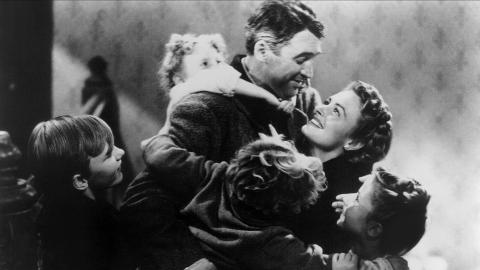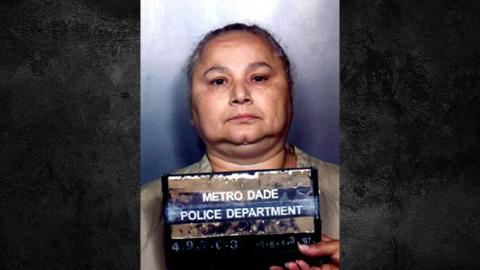
The life of Noor Inayat Khan: An unsung hero of WWII
Noor Inayat Khan was the first female wireless operator to be sent into occupied France to assist the French Resistance and work as a British spy.
Image: Noor Inayat Khan | Public Domain
The Lost Women Spies tells the story of the female spies whose vital missions during World War II have remained secret for more than 50 years. The show starts Tuesday, 14th January at 9pm on Sky HISTORY.
The incredible life and achievements of Noor Inayat Khan - one of WWII's unlikeliest of spies – is the focus of a short film titled Liberté.
The descendent of Indian royalty became the first female wireless operator to be sent into occupied France to assist the French Resistance and work as a British spy. The information she gathered significantly aided in the success of the D-Day landings, however, Noor was eventually captured and her life was violently cut short.
Her heroism, bravery and contributions to the war effort have been overlooked by the history books, so we look to shed light on the inspirational true story of Noor Inayat Khan.
Early years
Noor was born on 1 January 1914 in Moscow to an Indian-Muslim father and an American mother. Her father was a musician, a teacher of Sufism and a direct descendent of Tipu Sultan, who ruled the kingdom of Mysore in southern India. Noor’s father had spent time travelling around America which is where he met his wife.
Noor was the eldest of four children and only spent a few months living in Moscow before the outbreak of World War I saw her family move to London. After the war, the family relocated again, this time to Paris where Noor spent most of her childhood.
At the age of just thirteen, Noor’s father tragically passed away, placing an enormous sense of responsibility on the shoulders of his oldest child. Following in her father’s footsteps, she became a talented musician, playing several instruments including the piano and harp. As she grew into a young adult, she began a career as a children’s author, writing stories in both English and French.
World War II
After Germany invaded France in May 1940, Noor’s family was once again on the move, returning to England the following month. Although her father’s pacifist teachings had greatly influenced Noor, she decided, along with her brother, to join the war effort.
In November 1940, Noor joined the Women’s Auxiliary Air Force (WAAF) and was trained as a wireless operator. However, by mid-1941 she’d become restless with her duties and wished to do more. It wasn’t long before she’d caught the attention of the Special Operations Executive (SOE).
SOE training
Being a fluent French speaker who'd lived in Paris, Noor was a perfect candidate for the fledging spy organisation nicknamed 'Churchill's Secret Army'. Before she could begin active duty, she had to go through special training as a wireless operator in occupied territory. She was the first woman to be sent for this training, as all those before her had been couriers.
The intensive training course, complete with mock Gestapo interrogation, pushed Noor to the limit. Her performances divided her superiors, with some believing she was unfit to work in the field. These opinions were supported by her poor athletic reports, her gentle disposition and her fear of weaponry.
Paris awaits
Two fellow agents wrote to intelligence officer Vera Atkins towards the end of Noor's training. They spoke of a melancholy that had recently come over her and they believed that she shouldn't be sent to France. Around the same time, Noor's brother expressed his concerns to her about mixing pacifist beliefs with potentially violent situations.
In the end, Atkins decided to meet with Noor at a Mayfair restaurant to make a final call. Although Atkins allowed her to back out without controversy, Noor's commitment to the cause was unwavering and Atkins eventually gave her the go-ahead.
Time was against them though and the need for agents in the field meant that Noor couldn’t complete the entirety of her training. She was given a new identity, fake papers and the codename ‘Madeleine’ before she was flown, under the cover of darkness, into northern France on 16 June 1943.
Undercover in France
Noor was to join the ‘Prosper’ network of the French Resistance and become the communication link between them and London. Sending and receiving messages via a transmitter was her role, but it was an extremely dangerous one.
As the war went on, the Gestapo got better at picking up signals and detection vans could hone in on the exact locations of transmissions. The bulky transmitters the British spies had to carry were also difficult to subtly hide, any stop and search would prove to be fatal. The life expectancy of a radio operator in occupied territory in 1943 was just six weeks. The mission ahead of Noor required bravery of the highest level.
Unbeknownst to Noor, the Gestapo had been making significant inroads into unravelling the Prosper network. Just over a week after she arrived in Paris, the Gestapo began rounding up members of her new network.
Senior officers back in Britain wanted to pull Noor out, but she insisted on staying, believing she was the only wireless operator left in Paris at that time. Constantly on the move, she sent messages back home as often as she could.
She managed to successfully evade the Gestapo for four months, relaying vital information back to Britain that helped with the Allied planning for D-Day.
Capture and torture
Noor planned to leave Paris and head home in mid-October, but sadly she’d never set foot on British soil again. After being betrayed by a French woman, the Gestapo arrested her and began their interrogations. She gave them nothing and even attempted to escape twice, although both attempts ended in recapture.
Noor had kept copies of her secret signals in notebooks that the Gestapo found. They were able to pretend to be Noor and communicate with London. This led to the deaths of several SOE agents.
Considered highly dangerous, Noor was moved to Germany in late November 1943 where she’d spend the next ten months in solitary confinement at Pforzheim prison. With her hands and feet shackled together preventing her from walking upright, she was subjected to horrific torture.
Not once did she volunteer any information about her work or her fellow operatives to her capturers, despite receiving regular beatings.
Final days
On 11 September 1944, Noor was transferred to the Dachau concentration camp where two days later she was executed by firing squad, alongside three other female SOE agents. Her last word was reportedly ‘Liberté’.
For her courage and contribution to the Allied war effort, Noor was posthumously awarded the British George Cross and the French Croix de Guerre.





















